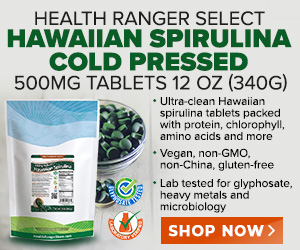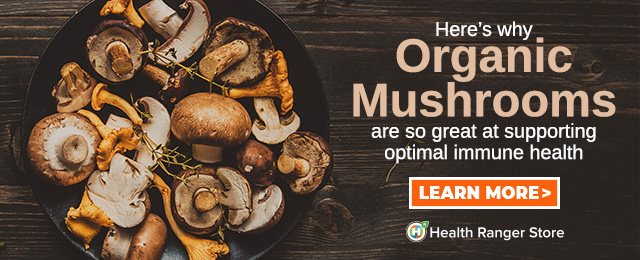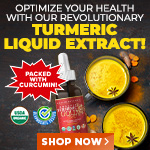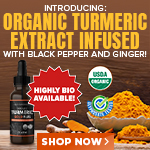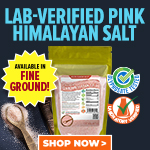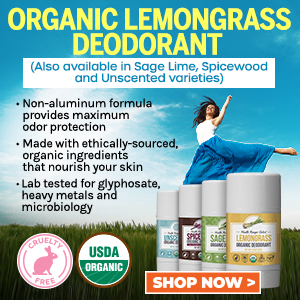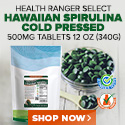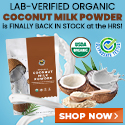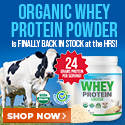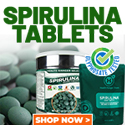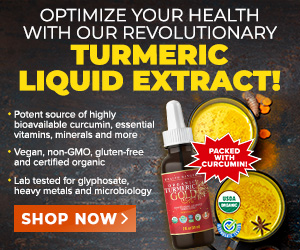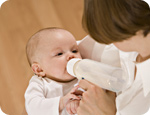
Organic Similac: Formula for Obesity?
Wednesday, August 06, 2008 by: Joanne Waldron
Tags: Similac, health news, Natural News
- Chemtrails unveiled: How the CIA and Big Business are manipulating the weather for profit
- Mysterious underwater pyramid off Japan could rewrite ancient history
- Israeli lobbyists boast of controlling US national security policy in leaked AIPAC audio
- How to live without electricity: A practical guide for survival and preparedness
- Geoengineers forced into secrecy as public backlash grows: How climate elites are manipulating populations to accept geoengineering experiments
- Tulsi Gabbard leads charge against the Biden regime’s global censorship of the 'Disinformation Dozen'
- Fauci is back in the limelight, and he’s busy promoting a future COVID or FLU pandemic
- Common household chemicals linked to America's depression epidemic
- Pfizer's RSV vaccine linked to preterm births as drug giant CONCEALED RISKS from pregnant women in unethical clinical trials
- Shedding light on the dark side of MMR vaccines: How vaccinated individuals SPREAD MEASLES & put the vulnerable at risk
- Analysis: The coming economic collapse, a mass uprising and Trump's three secret weapons to halt the growing revolt
- The HEART-HEALING power of SEVEN Mediterranean plants
- Over 30 pieces of evidence on how ‘the climate scam is collapsing’
- Aerosolized bioweapons? Strange “diploid biomasses” falling out of the sky in Florida captured under the microscope
- Widespread social and economic unrest: Steve Quayle issues urgent financial warning of imminent asset collapse in new interview with Mike Adams
- Tulsi Gabbard takes aim at censorship: Justice for the ‘Disinformation Dozen’
- Mike Adams releases country western hit single: Goin’ Back in Time is Comin’ Home
- U.S. lawmakers investigate Meta over alleged China collaboration
- Aerosolized bioweapons? Strange “diploid biomasses” falling out of the sky in Florida captured under the microscope
- Widespread social and economic unrest: Steve Quayle issues urgent financial warning of imminent asset collapse in new interview with Mike Adams
- CLOT SHOT PLANDEMIC UNFOLDING: Fibrous, rubbery clots caused by covid injections have prion-like seeding activity
- Analysis: The coming economic collapse, a mass uprising and Trump's three secret weapons to halt the growing revolt
- Kiss Your Genetic Privacy Good-Bye! 23andMe Gets Green Light to Sell Your Intimate Genetic Details to Anyone They Want
- Tulsi Gabbard leads charge against the Biden regime’s global censorship of the 'Disinformation Dozen'
- Mike Adams releases country western hit single: Goin’ Back in Time is Comin’ Home
- DEATH by VACCINE or face PRISON time: Canadian Freedom Convoy leaders CONVICTED for protesting forced vaccination during the Covid Plandemic
- Fauci is back in the limelight, and he’s busy promoting a future COVID or FLU pandemic
- How Israeli military-connected corporations are secretly controlling your online privacy
- European Court of Justice: Healthcare professionals who promoted or administered COVID-19 vaccines are CRIMINALLY LIABLE for any harm caused
- Defunding DEADLY mRNA jabs: Government funding for mRNA technology being scrutinized and sidelined until proven "safe and effective" for real
- Tulsi Gabbard takes aim at censorship: Justice for the ‘Disinformation Dozen’
- Federal employees whine over DOGE's new directive requiring them to do a 5-point summary of weekly accomplishments
- U.S. approves new Russian ambassador as diplomatic thaw continues
- I Want My Bailout Money – new song and music video released by Mike Adams
- Trump administration poised to overhaul crypto regulations with new SEC leadership
- I Want My Bailout Money – new song released by Mike Adams
- Newly released JFK files reveal Pentagon's role in creating Lyme disease and covid in the same lab
- Mike Adams releases country western hit single: Goin’ Back in Time is Comin’ Home
- Analysis: The coming economic collapse, a mass uprising and Trump's three secret weapons to halt the growing revolt
- MEDICAL BOMBSHELL: FDA admits Covid mRNA 'Vaccines' CAUSE CANCER
- Dr. Mike Yeadon releases 15-minute testimony - WATCH - about genocidal intent of COVID “vaccines”
- Trump reverses course on Gaza plan, says “nobody is expelling Palestinians”
- 5 Simple steps to boost your brainpower: How to strengthen executive function in a distracted world
- The Health Ranger releases “Vaccine Zombie” song and music video, using AI-animated zombies for the music video
- California's social media censorship law struck down: A victory for free speech or a threat to online safety?
- Rep. Nancy Mace introduces bill to ban biological males from female facilities on federal property
- EPA advisor admits the agency is funneling billions to climate groups ahead of Trump’s return to White House
- Survival 101: Effective EMF blocking techniques
- Aerosolized bioweapons? Strange “diploid biomasses” falling out of the sky in Florida captured under the microscope
- OpenAI whistleblower who dissented against how the company trained ChatGPT found dead
- Trump Administration cuts 2,000 USAID jobs, places most employees on leave in sweeping reform effort
- A lack of integrity in Academia: Harvard professor found GUILTY of fraudulent research to promote CRT theory
- Sugarcane extract superior to cholesterol-lowering drugs?
- RFK Jr.'s SSRI antidepressant investigation sparks liberal meltdown, exposes Big Pharma's dangerous game
- Red Cross issues warning to stop blood plasma donations from vaccinated people
- Scientists confirm: GENIUS brain function can be spontaneously unleashed in humans without any apparent cause
- EPA advisor admits the agency is funneling billions to climate groups ahead of Trump’s return to White House
- HYSSOP: What research reveals about the health benefits of this ancient holy herb
- Two containers with completed ballots fall out of truck in Florida
- Fully vaccinated about to see “tsunami” of illness and death, warns virologist
- Global leaders unite to clamp down on “misinformation” with UN-backed Cascais Declaration
- Newly released JFK files reveal Pentagon's role in creating Lyme disease and covid in the same lab
- BREAKING: 2025 NDAA authorizes mandatory military draft of WOMEN across America… as Pentagon pursues global NUCLEAR war with both Russia and China at the same time
- Michael Yon warns of a ZIONIST TAKEOVER in Trump’s second administration
- Ozempic and Wegovy weight loss drugs are injectable LIZARD VENOM PEPTIDES that may unleash a devastating wave of organ failure… side effects align with symptoms of SNAKE BITES
- The Health Ranger releases “Vaccine Zombie” song and music video, using AI-animated zombies for the music video
- BOMBSHELL: DNA testing kits are a SCAM to develop ethnic-specific bioweapons
- Israeli soldiers accused of even more torture and abuse in the West Bank
- These 13 countries just signed an agreement to engineer a global FAMINE by destroying food supply
- Mike Adams releases country western hit single: Goin’ Back in Time is Comin’ Home
- NASA admits that climate change occurs because of changes in Earth’s solar orbit, and NOT because of SUVs and fossil fuels
- RFK Jr. clears key hurdle: Sen. Susan Collins backs controversial HHS nominee, signaling a new era for health policy
For example, a recent article in The New York Times revealed that the organic version of Similac infant formula is sweetened with cane sugar (sucrose) and is much sweeter than other infant formulas. While all infant formulas have some added sugars to aid in the digestion of proteins, other organic products use sugars like organic lactose, which is presumably a better match for what's found in breast milk and doesn't have the sweetness of sucrose. Most health-conscious readers are probably shaking their heads and thinking that it is nothing short of insanity to be adding sugar to baby formula when the U.S. is in the middle of an obesity epidemic. Were pediatricians actually consulted about what was put into this formula? Or was the product designed primarily by food chemists like the ones that create fast food strawberry milkshakes?
According to a list of frequently asked questions on the FDA website, the FDA currently does not approve infant formula before it can be marketed. The FDA does require that infant formula contain minimum amounts of certain nutrients, and it does provide upper limits for some nutrients. Certain nutrients that are required to be included in any infant formula are protein, fat, linoleic acid, vitamin A, vitamin D, vitamin E, vitamin K, thiamin (vitamin B1), riboflavin (vitamin B2), vitamin B6, vitamin B12, niacin, folic acid, pantothenic acid, vitamin C, calcium, phosphorus, magnesium, iron, zinc, manganese, copper, iodine, sodium, potassium and chloride. If cow's milk is not used for the formula, then biotin, choline and inositol must be included.
Any substance that is generally recognized as safe may be used in infant formula in the United States. For now, that means that sugar can be used in baby formula in the U.S., and there is absolutely no upper limit to the amount of sugar that can be dumped into it. Europe, on the other hand, in light of the childhood obesity epidemic, has banned all sucrose from baby formula products beginning in 2009.
According to the The New York Times article, Dr. Benjamin Caballero, director of the Johns Hopkins Bloomberg School of Public Health, doesn't think sucrose belongs in infant formula, either. Dr. Caballero believes that feeding children sweet things encourages them to eat more. He explains that babies and children generally prefer sweeter foods and will eat more of them than foods that aren't as sweet.
While having babies eat more might be of interest to food corporations, parents need to be concerned with the health of their children. Concerns about obesity aren't the only problem with putting sugar in baby formula. If a baby's teeth are constantly exposed to sugar, this could result in tooth decay.
Clearly, finding a safe infant formula is a daunting task. According to The Breastfeeding Task Force of Greater Los Angeles, there are many risks associated with using infant formula instead of breast milk. For example, formula feeding is responsible for up to 26% of insulin dependent diabetes mellitus in children. Middle-ear infections are three to four times more common in children who are fed infant formula, and children who are fed infant formula are also much more likely to be hospitalized due to bacterial infections. In addition to the health risks, some studies have shown that formula-fed babies don't do as well on intelligence tests as breast-fed babies.
Moreover, sugar isn't the only undesirable thing turning up in infant formula. An NPR report indicates that certain formulas enhanced with omega-3 fatty acids may actually pose a health risk. Other reports warn about Bisphenol-A turning up in infant formulations. What is a new mother to do?
Maybe new moms should take a lesson from the animal kingdom. What other mammals feed their babies the milk of other creatures? Do dogs try to feed their puppies cat milk? Of course not. Even small children know that cat milk is for kittens, just like cow's milk is for baby cows. Perhaps the perfect formula for a baby just isn't something that can be found in a can.
About the author
Joanne Waldron is a computer scientist with a passion for writing and sharing health-related news and information with others. She hosts the Naked Wellness: The Gentle Health Revolution forum, which is devoted to achieving radiant health, well-being, and longevity.Similac at FETCH.news
Get independent news alerts on natural cures, food lab tests, cannabis medicine, science, robotics, drones, privacy and more.
Take Action: Support Natural News by linking to this article from your website
Permalink to this article:
Embed article link: (copy HTML code below):
Reprinting this article:
Non-commercial use OK, cite NaturalNews.com with clickable link.
Follow Natural News on Facebook, Twitter, Google Plus, and Pinterest
Science News & Studies
Medicine News and Information
Food News & Studies
Health News & Studies
Herbs News & Information
Pollution News & Studies
Cancer News & Studies
Climate News & Studies
Survival News & Information
Gear News & Information
News covering technology, stocks, hackers, and more



"Big Tech and mainstream media are constantly trying to silence the independent voices that dare to bring you the truth about toxic food ingredients, dangerous medications and the failed, fraudulent science of the profit-driven medical establishment.
Email is one of the best ways to make sure you stay informed, without the censorship of the tech giants (Google, Apple, Facebook, Twitter, YouTube, etc.). Stay informed and you'll even likely learn information that may help save your own life."
–The Health Ranger, Mike Adams










